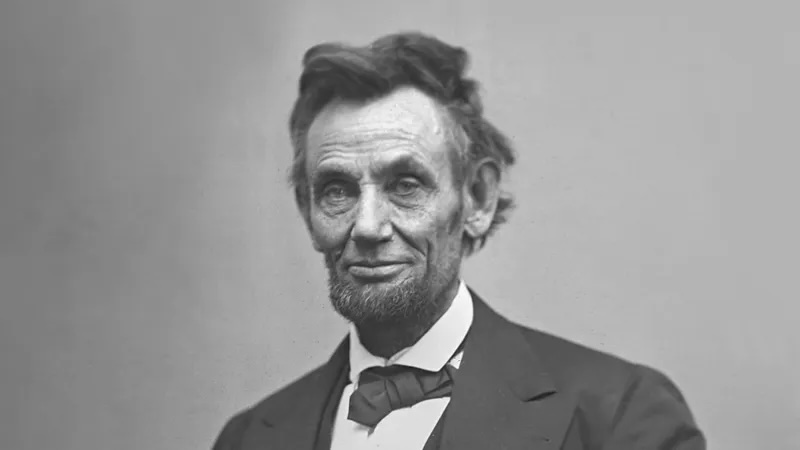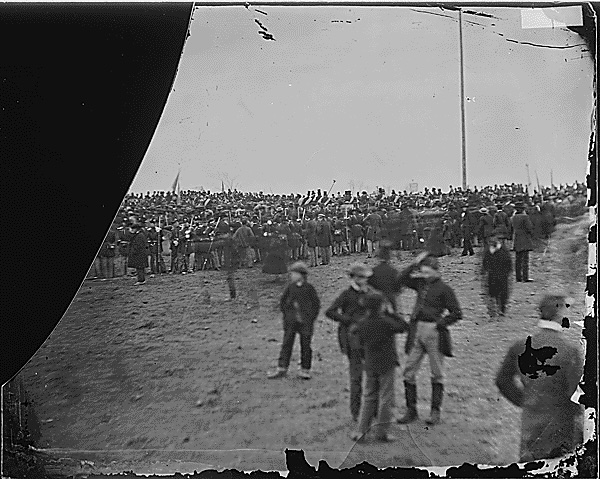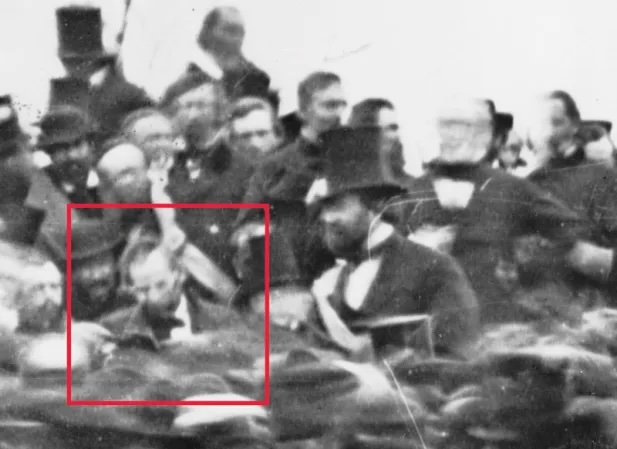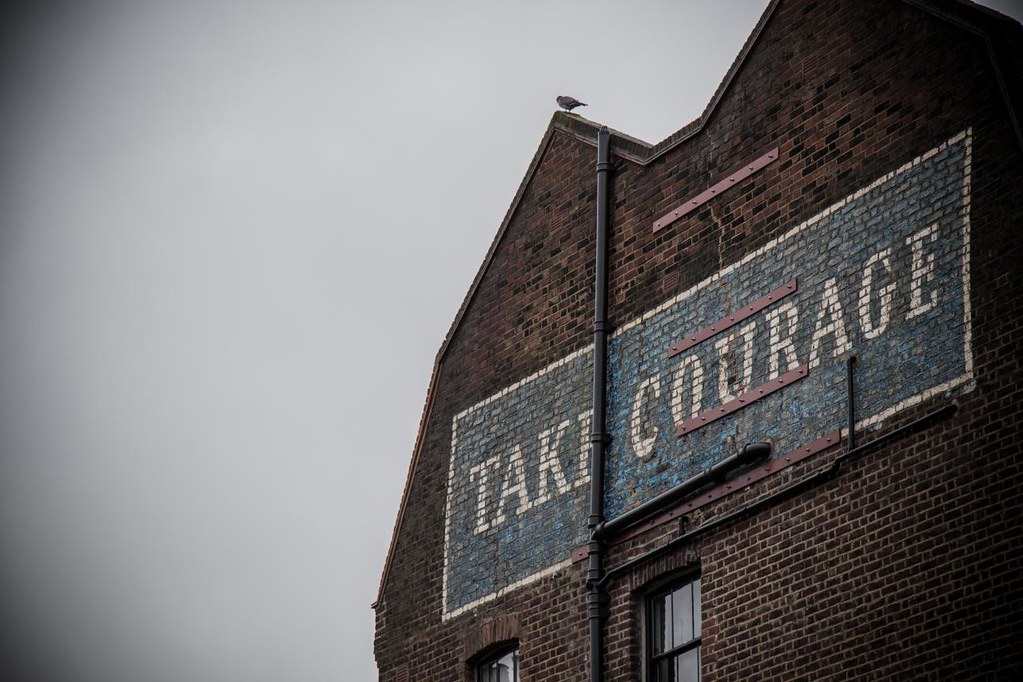Moxie: Doubt Never Disqualifies
Jun 23, 2025ONE STORY ("Gettysburg". Photo courtesy of Matt Evans.)
("Gettysburg". Photo courtesy of Matt Evans.)
"Doubt Never Disqualifies"
He Wasn't So Sure.
We like to believe that history was made by people who were confident.
Confident to lead. To speak. To bear the weight of the moment.
But confidence is largely a myth.
Take Abraham Lincoln.
(There are countless examples from history to draw from, btw, so I thought: why not pick from the front row?) (Abraham Lincoln. Photo courtesy of Britannica.)
(Abraham Lincoln. Photo courtesy of Britannica.)
Lincoln is, by almost any measure, the most admired American in history.
His words are immortal. His leadership saved a fractured nation.
His legacy? Untouchable.
But he didn't feel that way at the time.
He wasn't fast-rising. He definitely wasn't flashy.
And even when he finally was President at age 51, he still wasn't sure he belonged.
Lincoln Failed. A Lot.
If you haven't seen this before, look at his gut-wrenching resume:
1832 - Lost his first race for state office at age 23.
1833 - Failed in business, leaving Lincoln drowning in debt.
1835 - Lost Ann Rutledge, the woman he loved, to typhoid fever.
1836 - Battled depression so severe his friends feared he might take his own life.
1843 - Lost the Whig nomination for Congress.
1849 - Was passed over for a federal appointment he desperately wanted.
1854 - Lost his first Senate race.
1856 - Was defeated for the Vice Presidential nomination.
1858 - Lost his second Senate race to Stephen Douglas.

(The Gettysburg Cemetery Dedication. Photo courtesy of National Archives.)
Mid-November, 1863.
The war is tearing the country apart.
Lincoln is invited to speak at a cemetery dedication–not as the main event, but as the follow-up to Edward Everett, a nationally renowned orator who would speak for nearly two hours.
Lincoln is asked to offer "a few appropriate remarks."
His speech? Just 271 words.
He rewrote it several times. Agonized over every phrase. Was still revising it the morning of the ceremony.
Why? Because he was afraid it wouldn't be enough.
Because he wasn't sure he was enough.
And when he finished delivering those remarks,
He turned to his bodyguard and muttered:
"That speech won't scour."
Translation: It didn't work. It didn't land. It won't last.
That speech?
The Gettysburg Address.
History Doesn't Care About Our Confidence. Only Our Action.
The same speech schoolchildren still memorize.
That scholars call one of the most perfect expressions of democracy in history.
The opening line of which most of you can finish without thinking: "Four score and..."
(And that's saying something, considering nearly a third of this newsletter's readership is international.)
But Lincoln–the man who gave the address–walked away convinced it had failed.
The gap between our impact and our perception of it can be staggering.

(The first photo discovered of Lincoln at Gettysburg. Photo courtesy of National Archives.)
So if you're waiting to feel more confident. More ready. More capable. More qualified.
More whatever.
Stop.
Confidence isn't what creates impact.
Taking action does.
Lincoln didn't feel ready. He didn't feel confident.
He showed up anyway.
And you can too.
The moment that needs you won't wait for you to feel prepared.
It's waiting for you to show up and lead despite perhaps feeling unworthy of the task.
What are you waiting for?
📜 TWO QUOTES
“The probability that we may fail in the struggle ought not to deter us from the support of a cause we believe to be just.”
– Abraham Lincoln
"You can have courage or you can have comfort, but you can’t have both—not at the same time.
– Brené Brown
🚀 THREE TAKEAWAYS
1. Failure and doubt are not signs you’re off track.
They’re often the clearest indicators you’re doing something that matters.
2. Showing up anyway is the strongest antidote to imposter syndrome.
Confidence comes after action—not before it.
3. Courage isn’t the absence of fear.
It’s the presence of vision. I’ve said this before, but it’s still true this week.
🔍 MOXIE REFLECTIONS
-
What would I do differently if I believed my doubt was normal, not disqualifying?
-
Where have I shown up before—even while afraid—and made an impact anyway?
-
What opportunity is sitting idle because I’m not “confident”?
🛠️ TOOLS FOR GROWTH
🧩 PATTERN RECOGNITION: Imposter Syndrome
Imposter Syndrome says: If you feel like a fraud, you probably are. If you doubt yourself, it must mean you're not ready. If you’re in the room but don’t feel like you belong–you must not.
But that’s not truth. That’s a glitch in the system.
Lincoln flipped that. He didn’t wait to feel qualified. He spoke anyway. He stood in the gap between fear and purpose—and acted.
That shift matters. Because it means doubt isn’t a warning sign. It’s a doorway. And the ones who walk through it are the ones who change things.
🧠 MENTAL SKILL OF THE WEEK: Task-Focus
Task-Focused Action is the ability to act based on what the moment requires, not how confident you feel. It shifts your focus from “Am I ready?” to “What needs to be done?”
How to use it:
Before the meeting, conversation, or decision, ask: What does the task need from me right now? Let the work, not your worry, lead your attention.
Do the next right thing—especially when doubt is loud. Not perfectly. Just clearly. This isn’t faking confidence. It’s showing up with purpose, even when your feelings don’t follow.
🌱 ONE MORE THING
('Take Courage.' Photo by Samuel Tristan.)
If you’re stepping into something bigger–launching, leading, risking, building–and the doubt is loud?
Good.
That’s what it feels like to grow into your future.
Lincoln didn’t feel like a giant when he stood at Gettysburg. He just refused to let doubt have the mic. Neither should you.
You’re not faking it.
You’re becoming it.
Show up anyway.

